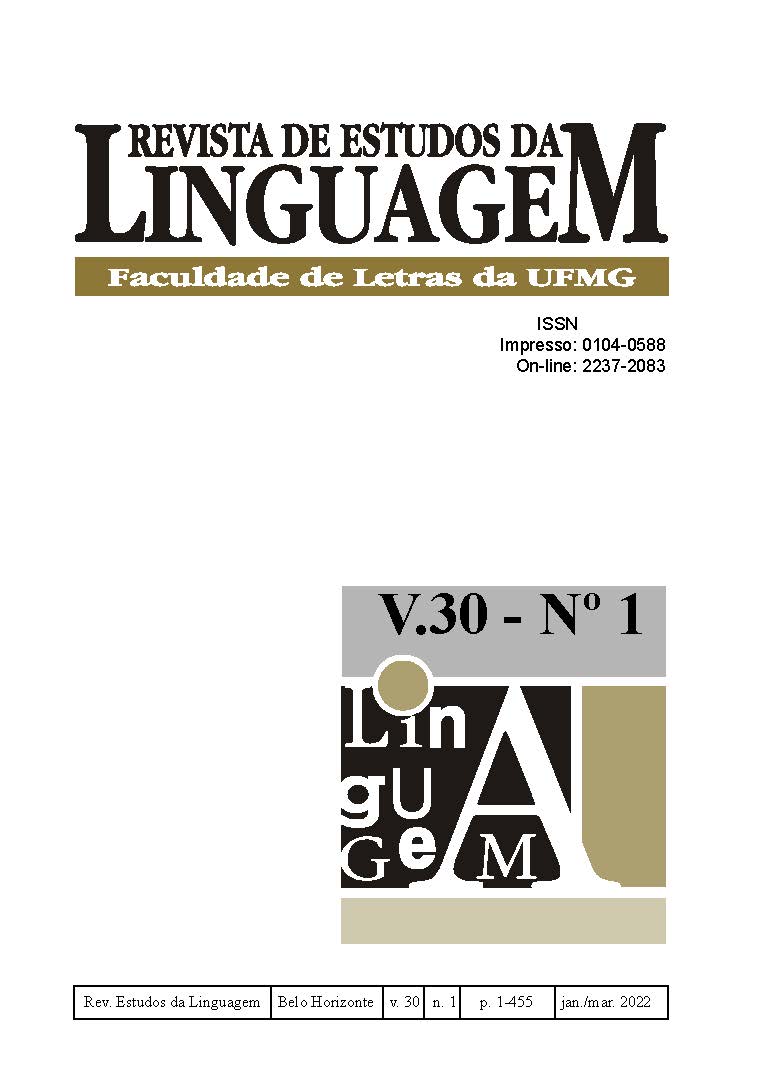Los escuetos definidos débiles en español rioplatense
DOI:
https://doi.org/10.17851/2237-2083.30.1.239-268Palavras-chave:
español rioplatense, nombres escuetos, definidos débilesResumo
Este artículo analiza el comportamiento semántico-sintáctico de un grupo de nombres singulares contables en español rioplatense. En particular, estudiamos los nombres escuetos que aparecen en posición de complemento de la preposición de dirección a (Ana va a consultorio) y de locación en (Los jugadores están en cancha) y de verbos transitivos (Juan mira tele/ escucha radio). Primero, presentamos una serie de diagnósticos que muestran que estos escuetos presentan las propiedades típicamente atribuidas a las expresiones nominales definidas débiles (tal como han sido descritas por Carlson y Sussman (2005)). Luego de ofrecer una descripción sistematizada, presentamos un modelo no seudoincorporacionista –inspirado en de de Swart (2015)–, con el fin de capturar su naturaleza semántica y sintáctica. Partimos de un análisis unificado para estas construcciones y, resumidamente, postulamos que estos escuetos proyectan una estructura sintáctica defectiva, sin realización fonológica del D y sin SNúm. Asimismo, asumimos que el determinante no expreso mantiene su significado de unicidad y familiaridad y retomamos de Aguilar-Guevara (2014) el argumento de que los definidos débiles designan una entidad abstracta, del orden de una clase, y no un objeto particular. Por fin, este estudio pretende contribuir a la hipótesis de que la definitud débil es un fenómeno interlingüístico, que comprende tanto SN como SD en las posiciones sintácticas ya señaladas.





